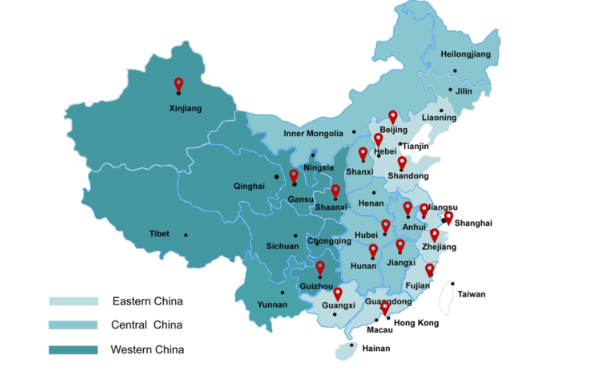Yes. China is increasingly welcoming towards international students. This is evident through its progressive policies, diverse scholarship programs, efforts to improve the quality of education, and the fostering of a culturally inclusive environment.
Table of Contents
Is China Welcoming International Students?
In recent years, China has been increasingly welcoming towards international students. This shift in attitude is driven by the Chinese government’s policies and efforts to promote its global image and influence, as well as to build a culturally diverse educational environment.
China’s approach towards international students can be evaluated through various aspects, including policies, programs, and on-ground experiences.
Government Policies
China’s government policies play a crucial role in attracting international students. These include implementing favorable visa policies, offering a wide range of scholarships, and easing work restrictions for international students. These policies reflect China’s intention to attract global talent and foster international exchanges.
Educational Programs
Chinese universities have been offering an increasing number of programs in English, broadening their appeal to international students. Moreover, the overall quality of higher education in China has been improving, with several Chinese universities now ranked among the top global institutions.
Cultural Exchange
China provides international students with unique cultural experiences, facilitating cultural exchange and mutual understanding. On-campus international student organizations and activities are common, which enrich the overall student experience and foster cultural integration.
Infrastructure and Support Services
China has been investing heavily in infrastructure and support services for international students. This includes providing international student dormitories, establishing international student offices to offer assistance, and setting up platforms for international students to voice their needs and concerns.
China’s Historical Relationship with International Students
China has a long history of cultural exchange, which has historically included the acceptance of international students. The country’s relationship with international students dates back to the Han and Tang dynasties when scholars from neighboring regions were welcomed into Imperial colleges.
Early Exchanges and the Silk Road
During the Han Dynasty, the Silk Road played a significant role in bringing foreign students to China. They arrived primarily from Central Asia, learning about Chinese culture and language.
Modern Exchange and the Opening up of China
In the late 1970s, with Deng Xiaoping’s “reform and opening up” policy, the number of international students in China started to increase significantly. The country began to open its doors to international students from all around the world, promoting cultural exchange and mutual understanding.
Evolution of Policies and Regulations
China’s policies and regulations regarding international students have evolved over time, reflecting changes in China’s international relations, educational objectives, and domestic needs.
Early Regulations and Diplomatic Relations
In the early days, policies were mainly driven by diplomatic relations, with international students primarily coming from allied socialist countries.
Post-Reform Era and the Drive for Globalization
In the post-reform era, the Chinese government started to implement more comprehensive and favorable policies for international students. The Ministry of Education has issued several regulations to encourage international students to study in China, such as providing scholarships, improving the quality of education, and promoting Chinese language and culture worldwide.

Impact of International Students on China’s Development
The influx of international students has greatly impacted China’s development, especially in the fields of education, culture, and economics.
Impact on Education and Cultural Exchange
International students have brought diverse cultures and ideas to Chinese universities, enriching the academic environment and promoting cultural exchange. Chinese students have had the opportunity to interact with their international peers, providing them with a global perspective.
Economic Impact
International students also contribute economically to China. They consume local goods and services and sometimes choose to stay in China to work after graduation, contributing to China’s labor force and talent pool. The presence of international students in China also encourages domestic industries such as real estate, food, and retail to develop, indirectly boosting the economy.
Current Status of International Students in China
In the 21st century, China has emerged as one of the leading destinations for international students from around the world. Many factors contribute to this, including the country’s rapid economic growth, cultural richness, and increasing influence on the global stage.
Statistics on International Student Enrollment
China has seen a significant increase in the number of international students in the past few decades. According to the Ministry of Education of the People’s Republic of China, by the end of 2022, there were over 500,000 international students studying in China, making it the third most popular destination for international students worldwide.
Popular Fields of Study for International Students
The popular fields of study for international students vary. However, programs related to Chinese language studies, Business Administration, International Relations, and Engineering attract a considerable number of international students. Notably, Traditional Chinese Medicine (TCM) has gained attention among international students due to its unique approach and global recognition.
Geographical Distribution of International Students in China
International students in China are mostly distributed in major cities with prominent universities. Cities like Beijing, Shanghai, and Guangzhou host a large number of international students. Beijing, as the capital and home to top universities such as Peking University and Tsinghua University, has the highest number of international students. Additionally, coastal cities and provinces, such as Jiangsu and Zhejiang, have a high concentration of international students due to their abundant educational resources and attractive living conditions.

Policies and Regulations for International Students
With the increasing number of international students in China, the Chinese government has introduced numerous policies and regulations to facilitate their stay and studies.
Visa and Residence Permit Requirements
International students wishing to study in China need to apply for a student visa, known as the X visa. The X1 visa is for international students who intend to study in China for more than six months, while the X2 visa is for those who plan to study for less than six months. After arriving in China, students holding an X1 visa must apply for a residence permit within 30 days from the date of entry.
Scholarships and Financial Support
The Chinese government, in collaboration with various Chinese universities, offers a range of scholarships for international students. The most prestigious one is the Chinese Government Scholarship, which covers tuition fees, living expenses, and provides a monthly stipend. There are also other scholarships, such as the Confucius Institute Scholarship and university-specific scholarships.
Work Opportunities for International Students
China has gradually relaxed the work restrictions for international students. With proper permission from their university and the local public security bureau, international students can partake in part-time work or internships off-campus. Upon graduation, international students are encouraged to stay in China for employment. The Chinese work visa or “Z” visa is commonly used for foreigners who have obtained employment in China.
COVID-19 Impact on International Students
The COVID-19 pandemic has had a significant impact on international students in China, affecting various aspects of their academic and daily life.
Travel Restrictions and Quarantine Measures
The COVID-19 pandemic led to the implementation of strict travel restrictions and quarantine measures globally. Many international students were unable to return to China due to these restrictions. Those who managed to travel had to comply with strict quarantine measures upon arrival. This situation was continually evolving, and students had to stay updated with information from the Ministry of Foreign Affairs of the People’s Republic of China and their respective embassies.
Online Learning and Hybrid Models
Due to the pandemic, universities in China, like many institutions worldwide, had to rapidly transition to online learning to ensure continuity in education. This shift led to the implementation of various online platforms and digital resources. Over time, some institutions adopted hybrid models, combining both online and in-person teaching, following safety guidelines from the World Health Organization and local health authorities.
Support Services for International Students During the Pandemic
During this challenging period, Chinese universities stepped up their support services for international students. These included providing regular health and safety updates, psychological counseling services, and academic support for online learning. Some universities also coordinated with students stuck overseas to handle issues related to accommodation and tuition. Additionally, Chinese authorities issued guidelines to universities to ensure the rights and interests of international students were protected during the pandemic.Is China welcoming international students
Reference
- Education in China
- Visa policy of China
- Chinese Government Scholarship
- Ministry of Education of the People’s Republic of China
- Traditional Chinese medicine

